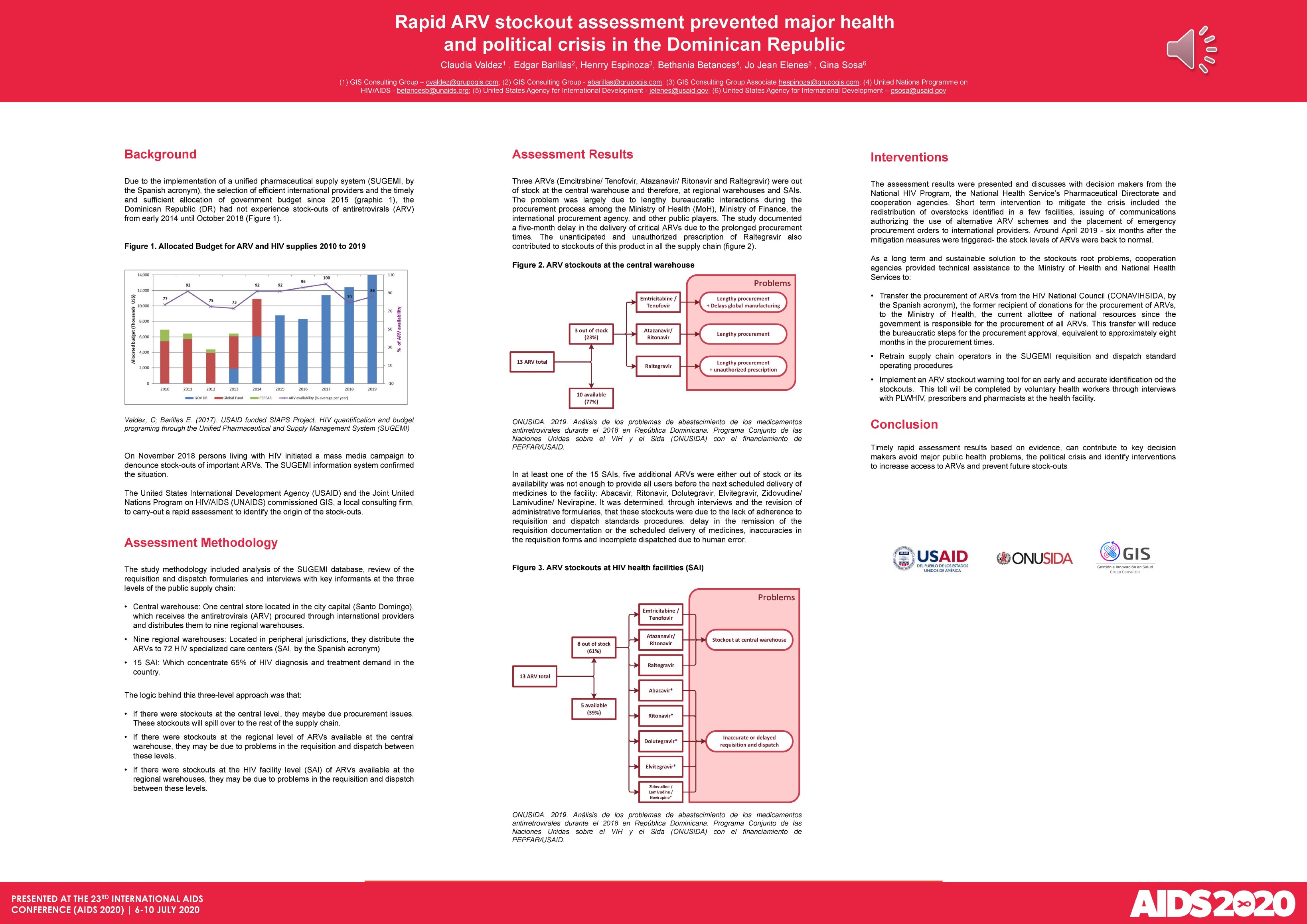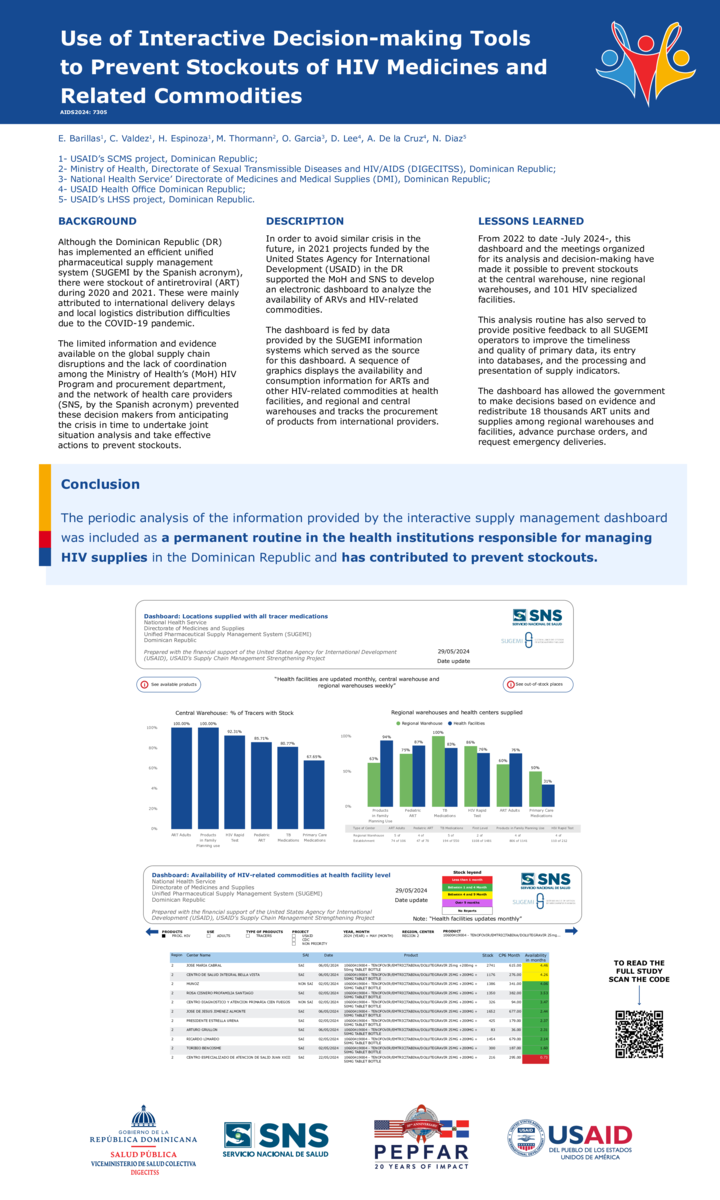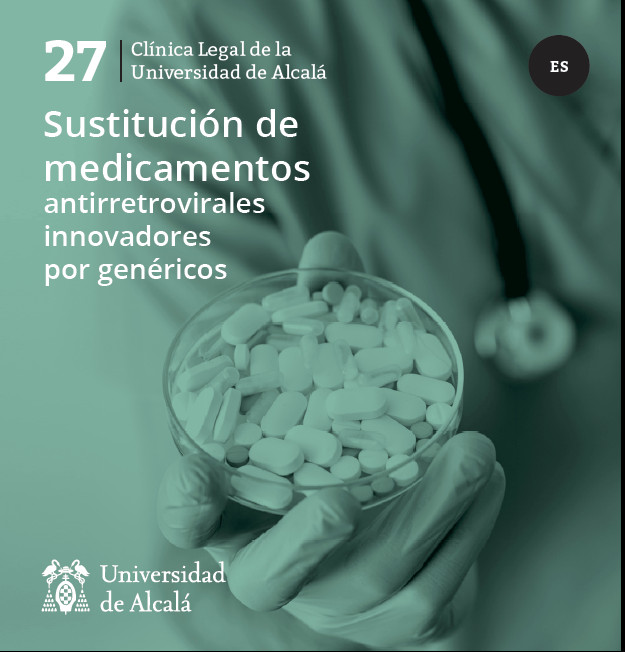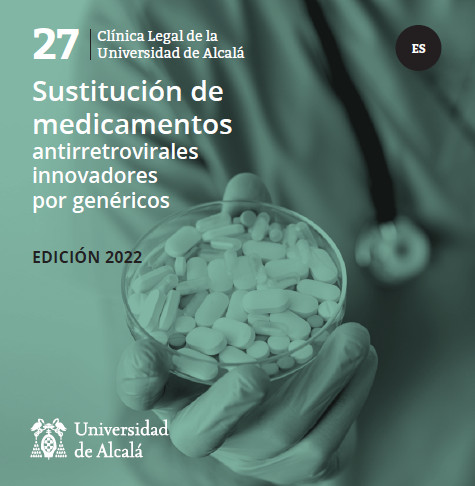Resum
BACKGROUND: Due to the implementation of an efficient pharmaceutical supply system (known as SUGEMI), the selection of efficient international providers and the allocation of the government budget, the Dominican Republic (DR) had not to experience stock-outs of antiretrovirals (ARV) from early 2014 until October 2018 (Graphic 1). In November 2018 persons living with HIV initiated a mass media campaign to denounce stock-outs of important ARVs. The SUGEMI information system confirmed the situation. DESCRIPTION: USAID and ONUSIDA commissioned GIS to carry out a rapid assessment to identify the origin of the stock-outs. The study methodology included analysis of the SUGEMI database, review of the requisition and dispatch formularies and interviews with key informants at different levels of the logistic chain. Three ARVs were out of stock in all the supply chain due to lengthy exchanges during the procurement process among the Ministry of Health (MoH), Ministry of Finance, the procurement agency, and other public players. Other ARVs were out of stock in health facilities due to the lack of adherence to requisition and dispatch standards procedures. LESSONS LEARNED: The results were presented to the Minister of Health, who ordered -though a Ministerial Decree- the direct procurement of ARVs by the MoH, saving at least 8 months in the procurement process. Based on the study results, the cooperating agencies and the MoH have committed resources to strengthen the adherence to the SUGEMI standards operative procedures, monitoring annual procurement, designed of a standard form for people with HIV can alert and inform about potentials stock-outs to the authorities at facility level. As of April 2019, the stock-out crisis was over. CONCLUSIONS: Timely rapid assessment results based on evidence can contribute to key decision-makers to avoid major public health problems, the political crisis and identify interventions to increase access to ARVs and prevent future stock-outs






